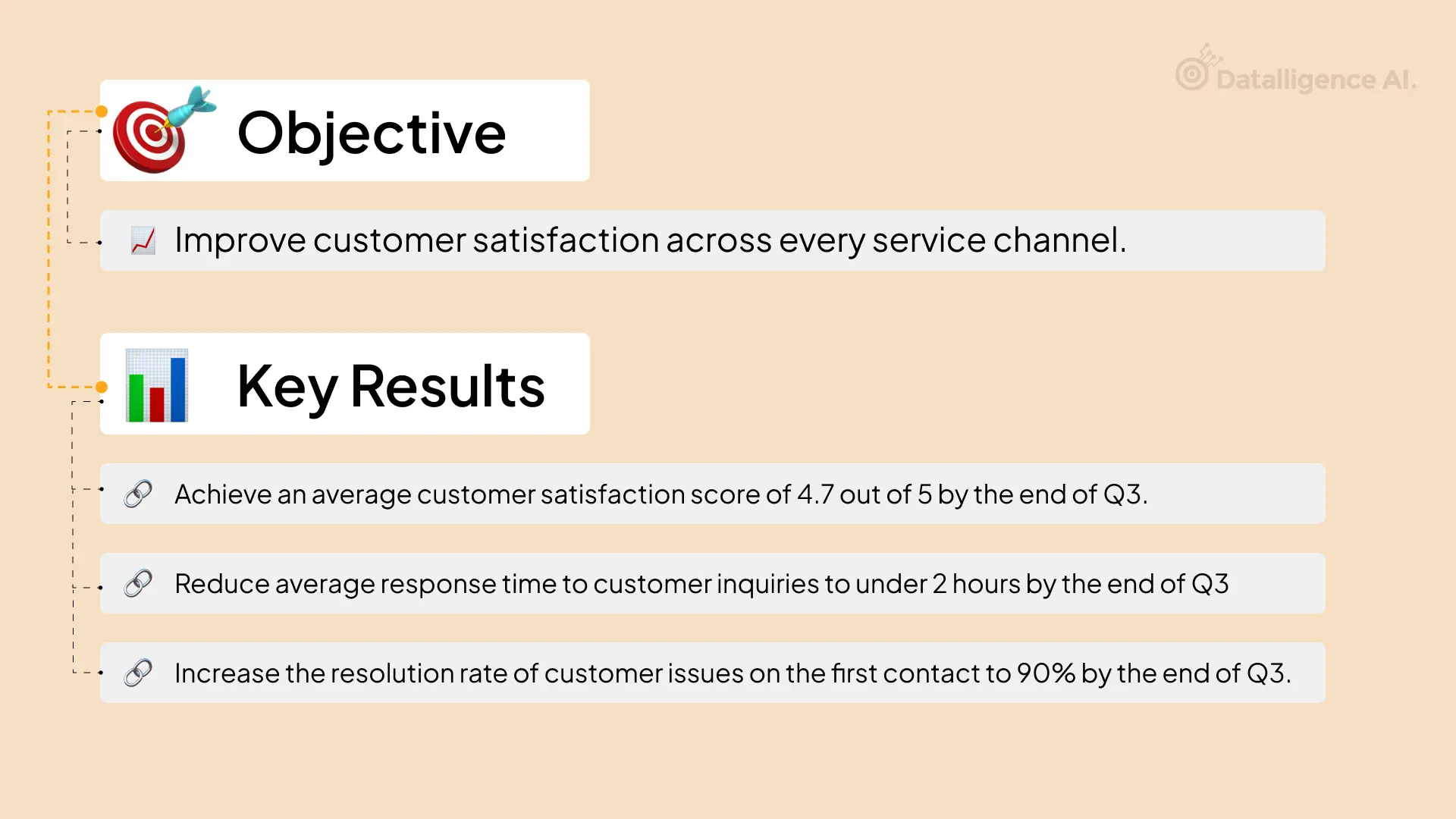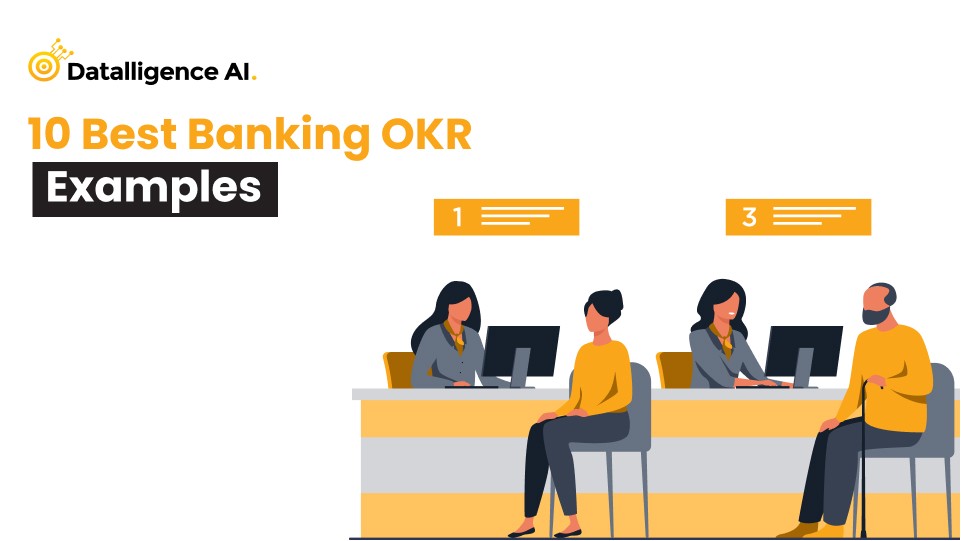In today’s ever-evolving corporate landscape, setting well-defined business management goals is pivotal for driving organizational success. These objectives serve as the guiding force, propelling companies toward their overarching vision and mission. By articulating clear goals, business leaders can foster a shared sense of purpose, motivate teams, measure progress, and continually refine performance.
At the core of effective business management lies the ability to differentiate between goals and objectives. While goals represent broad, long-term outcomes an organization strives to achieve, objectives are specific, measurable, and actionable steps that pave the way toward those goals. Objectives function as the building blocks, enabling businesses to progress methodically toward their broader aspirations.
Frameworks for Crafting Impactful Business Goals
To maximize the impact of business management goals, organizations can leverage a variety of goal-setting frameworks. These structured approaches provide a roadmap for defining, tracking, and achieving objectives, ensuring alignment and accountability across all levels of the organization.
The SMART Approach
One of the most widely adopted frameworks is the SMART (Specific, Measurable, Achievable, Relevant, and Time-bound) methodology. By adhering to these criteria, businesses can formulate goals that are clear, quantifiable, realistic, aligned with organizational priorities, and bound by specific deadlines.
For instance, a SMART goal might be: To increase online sales revenue by 15% within the next six months by optimizing our e-commerce platform and implementing targeted marketing campaigns.
Business Objectives and Key Results (OKRs)
Another popular approach is the Objectives and Key Results (OKRs) framework. This method involves setting a well-defined objective and then identifying key results – standardized measurements of success or progress.
The OKRs framework is designed to help organizations align their goals and track outcomes efficiently. By using the OKRs framework for goal-setting, companies can ensure that all team members are working towards the same strategic objectives. This alignment is crucial for maintaining focus and driving collective efforts toward common goals.
Implementing OKRs for business objectives involves a few key steps. First, you need to define clear and ambitious objectives that are both inspiring and achievable. These objectives should be broad in scope, capturing the essence of what you want to achieve.
Another benefit of using OKRs for strategic planning is the regular review and adjustment process. By frequently reviewing key results and assessing progress, organizations can make data-driven decisions and course-correct if necessary. This adaptability is essential in today’s fast-paced business environment, where agility can make the difference between success and failure.
In summary, the OKRs framework for setting and tracking business objectives provides a structured yet flexible approach to achieving organizational goals.
An example could be:

Management by Objectives (MBO)
The Management by Objectives (MBO) framework encourages collaboration between managers and employees in setting specific, agreed-upon objectives and developing plans to achieve them. This approach fosters buy-in, alignment, and shared accountability.
An MBO goal might be: This quarter, our sales team aims to increase the conversion rate of qualified leads by 25% through targeted training and process optimization.
Big Hairy Audacious Goals (BHAGs)
For organizations seeking to push boundaries and inspire teams with a bold, visionary aspiration, the Big Hairy Audacious Goal (BHAG) framework can be a powerful tool. While ambitious and potentially unattainable, BHAGs can energize and unite teams around a shared, audacious purpose.
An business goals examples could be: To become the global leader in sustainable manufacturing practices by 2030, set new environmental responsibility industry standards.
Key Result Areas (KRAs)
Key Result Areas (KRAs) involve identifying a concise set of goals that individuals, departments, or the entire organization can work toward. These goals function as a rubric for measuring progress and ensuring that efforts align with the overall health and success of the business.
A KRA might be: Increase the average number of high-quality sales leads per sales representative by 30% year-over-year.
Diverse Dimensions of Business Management Goals
Business management goals encompass various objectives, each tailored to address specific organizational needs and priorities. From growth and process optimization to innovation and sustainability, these goals collectively drive businesses toward their desired outcomes.
Growth Goals
Growth goals focus on expanding the size, scope, and impact of a company. This could involve increasing the workforce, adding new verticals, opening new locations, or capturing a larger market share.
For example, a growth goal might be: To establish a strong presence in three new international markets within the next two years, expanding our global footprint and customer base.
Process Goals
Also known as efficiency goals, process goals aim to enhance the day-to-day effectiveness of teams and operations. These objectives might involve streamlining workflows, optimizing resource allocation, or upskilling employees to improve productivity and operational excellence.
An example could be: To implement a centralized project management system by Q4, enabling real-time visibility, collaboration, and data-driven decision-making across all departments.
Problem-Solving Goals
When faced with specific challenges or inefficiencies, organizations can set problem-solving goals to address and overcome these hurdles. These objectives might involve revising policies, restructuring processes, or pivoting strategies in response to changing market conditions or regulatory environments.
A problem-solving goal could be: To reduce the average customer service response time by 50% within six months by implementing AI-powered chatbots and optimizing support staff allocation.
Development Goals
Investing in the continuous development of skills and expertise is crucial for maintaining a competitive edge. Development goals focus on fostering a culture of learning and growth, whether through formal training programs, mentorship initiatives, or encouraging employees to pursue certifications or educational opportunities.
An example could be: To establish a comprehensive leadership development program by the end of the year, equipping our managers with the skills and knowledge to drive high-performing teams.
Innovation Goals
In an ever-changing business landscape, innovation is key to staying ahead of the curve. Innovation goals revolve around creating new or improved products, services, or business models that meet evolving customer needs and market demands.
A goal in this realm might be: To launch a cutting-edge, AI-powered predictive analytics solution by Q3 2024, revolutionizing the way our clients leverage data for strategic decision-making.
Profitability Goals
Profitability, or financial goals, are fundamental to the long-term sustainability and growth of any business. These objectives focus on improving financial performance, increasing revenue streams, reducing operational costs, or enhancing shareholder value.
An example could be: To achieve a 20% year-over-year increase in net profit margins by the end of the fiscal year through strategic cost optimization initiatives and targeted sales efforts in high-growth markets.
Sustainability Goals
As corporate social responsibility and environmental stewardship become increasingly paramount, sustainability goals are gaining traction across industries. These objectives aim to reduce a company’s negative impact on the environment or actively contribute to environmental preservation and restoration efforts.
A sustainability goal might be: To transition to 100% renewable energy sources for all manufacturing facilities by 2027, significantly reducing our carbon footprint and setting a benchmark for sustainable operations within our industry.
Marketing Goals
Effective marketing is essential for building brand awareness, attracting new customers, and fostering loyalty among existing ones. Marketing goals revolve around increasing a company’s influence and market presence through various channels and initiatives.
An example could be: To double our social media following and engagement rates across all platforms within the next 12 months, positioning our brand as a thought leader and strengthening customer relationships.
Customer Relations Goals
Prioritizing customer satisfaction and trust is paramount for any business seeking long-term success. Customer relations goals focus on improving the overall customer experience, from streamlining service processes to enhancing product quality and value proposition.
A goal in this realm might be: To achieve a Net Promoter Score (NPS) of 85 or higher by the end of the year, solidifying our reputation as an industry leader in customer satisfaction and loyalty.
Company Culture Goals
Cultivating a positive, inclusive, and engaging work environment is crucial for attracting and retaining top talent. Company culture goals aim to foster a sense of belonging, promote work-life balance, and create an atmosphere where employees can thrive and contribute their best.
An example could be: To implement a comprehensive employee wellness program by Q2 2024, promoting physical and mental well-being, work-life balance, and a culture of support and inclusivity.
The Power of Short-Term Business Management Goal
While long-term goals provide a strategic direction, short-term business management goal serve as the stepping stones that propel organizations toward their ultimate objectives. These measurable, achievable targets can be accomplished within a defined timeframe, ranging from hours to weeks or months.
Short-term goals offer several advantages, including:
- Maintaining momentum and motivation by celebrating frequent wins
- Providing clear, actionable steps toward larger objectives
- Enabling agility and course correction as needed
- Fostering a sense of accomplishment and progress
When setting short-term business management goal, it’s essential to ensure they align with the overarching long-term vision and adhere to the SMART framework. This approach ensures that objectives are specific, measurable, achievable, relevant, and time-bound, increasing the likelihood of successful execution.
Here are a few examples of effective short-term business management goal:
- To increase the average weekly website traffic by 25% within the next three months through targeted SEO optimization and social media advertising campaigns.
- To reduce operational costs by 10% this quarter by implementing lean manufacturing principles and optimizing supply chain logistics.
- To launch a pilot employee mentorship program within the next six weeks, fostering knowledge-sharing, skill development, and career growth opportunities.
Embracing the Long Game: Long-Term Business Management Goal
While short-term goals provide tangible, immediate objectives, long-term business management goals are the visionary targets that shape an organization’s strategic trajectory. These ambitious, broad-reaching aspirations inspire teams, foster alignment, and guide decision-making over an extended period.
Crafting effective long-term goals requires a deep understanding of industry trends, market dynamics, and organizational strengths and weaknesses. It’s essential to strike a balance between ambition and realism, ensuring that goals are challenging yet achievable with dedicated effort and resources.
Here are a few examples of compelling long-term business management goal:
- To establish our company as the preeminent provider of sustainable, eco-friendly manufacturing solutions within the next decade, setting new industry standards for environmental responsibility and resource efficiency.
- To expand our global footprint and capture a 25% share of the Asia-Pacific market by 2030, leveraging our innovative product offerings and strategic partnerships.
- To cultivate a diverse, inclusive, and empowered workforce, where individuals from all backgrounds can thrive and contribute to our organization’s success, by 2028.
Navigating Challenges in Setting Business Management Goal
While goal-setting is a powerful tool for driving organizational success, it’s not without its challenges. Business leaders must be vigilant in addressing potential pitfalls and obstacles that can hinder progress or undermine the effectiveness of their goals.
Overcoming a Narrow Focus
One of the greatest benefits of setting business management goal is the ability to focus teams and align efforts toward a common objective. However, an overly narrow focus can also be a double-edged sword, limiting perspective and hindering adaptability. To mitigate this risk, organizations should encourage a culture of continuous learning, innovation, and openness to change, allowing teams to recognize and seize unexpected opportunities.
Striking the Right Balance: Ambition vs. Realism
Setting goals that are too ambitious can be demoralizing and lead to disengagement, while goals that lack ambition may fail to inspire and motivate teams. Finding the sweet spot between ambition and realism is crucial for maintaining momentum and fostering a sense of purpose.
Addressing Unexpected Obstacles
No matter how well-planned, unexpected obstacles and disruptions can derail progress toward business management goals. Effective risk management strategies, contingency planning, and agile decision-making processes are essential for navigating these challenges and minimizing their impact.
Ensuring Clear and Measurable Objectives
Vague or ill-defined goals can lead to confusion, misalignment, and an inability to accurately measure progress. Leveraging goal-setting frameworks like SMART or OKRs can help organizations craft clear, quantifiable objectives that provide a roadmap for success.
Sustaining Motivation and Momentum
Maintaining motivation and momentum over the long haul can be a significant challenge, especially when pursuing long-term business management goals. Regular progress reviews, celebrations of milestones, and effective communication strategies can help keep teams engaged and focused on the end goal.
The Imperative of Business Management Goal
In today’s dynamic business landscape, setting clear and well-defined goals is not just a best practice – it’s an imperative for success. By establishing business management goal, organizations can:
- Provide clarity and direction, ensuring that teams are aligned and focused on shared priorities.
- Foster accountability and measure progress, enabling data-driven decision-making and course correction when needed.
- Inspire motivation and a sense of purpose, driving teams to push boundaries and achieve their full potential.
- Encourage continuous improvement and innovation, as goals challenge organizations to evolve and adapt to changing market conditions.
- Facilitate strategic planning and resource allocation, ensuring that efforts and investments are directed toward the most impactful initiatives.
As businesses navigate an increasingly complex and competitive environment, the ability to set and achieve meaningful business management goal will be a key differentiator, separating the leaders from the followers.
Elevating Your Goal-Setting Prowess with Datalligence
At Datalligence, we understand the pivotal role that effective goal-setting plays in driving organisational success. Implementing OKR software for improving business performance empowers businesses with the insights and tools they need to set, track, and achieve their most ambitious goals.
Our comprehensive suite of products and services is here to make goal-setting in a jiffy. Our real-time goal tracking tools give you a clear view of your progress, helping you spot potential issues and make informed decisions quickly. We also use machine learning for predictive analytics, so you can forecast future outcomes and adjust your strategies proactively. Our collaboration tools keep everyone on the same page, making it easy to assign tasks, track progress, and communicate openly. Plus, our expert consultants are always ready to provide personalised support to help you reach your full potential.
At Datalligence.ai, we are committed to helping businesses of all sizes and industries thrive in an ever-changing world. Contact us today to learn how our innovative solutions can elevate your goal-setting prowess and drive your organisation toward unprecedented success.











